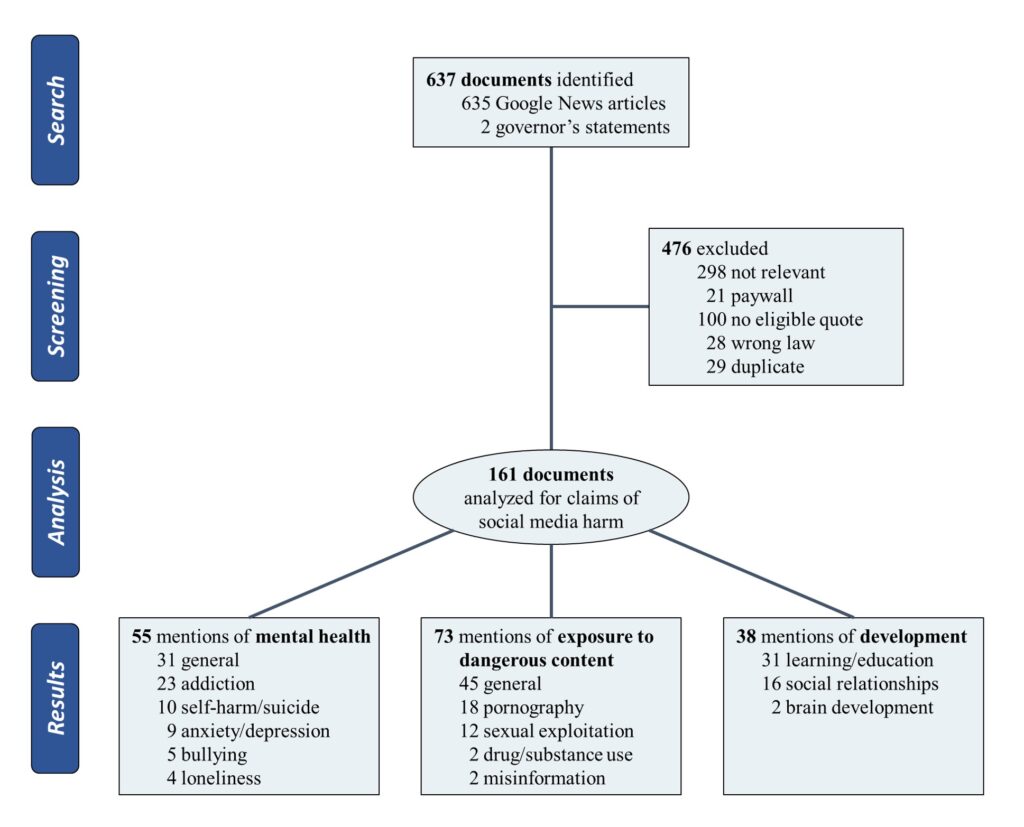Mental Health
US state regulation of adolescent social media use: Do policies match the evidence? Marco Thimm-Kaiser* Marco Thimm-Kaiser Katherine M. Keyes
The potential adverse effects of social media use on adolescent health and development have generated substantial scholarly and public attention. In response to the increasingly accepted thesis that social media use—at least if unregulated—is causing harm to adolescents, a growing number of state-level social media regulations are emerging in the U.S. These policy interventions are being designed in the context of mixed scientific evidence about the potential impacts of social media, forcing policy makers to weigh the need for proactive regulation to protect adolescents against the strength of the evidence that has accumulated to date. In this research, we explored the degree to which scientific evidence is used in arguments for state social media regulations. To this end, we conducted a media content analysis of elected government officials’ statements about 69 state social media legislative initiatives that were adopted or enacted prior to September 2024, using Google News. We identified and screened 637 documents, of which 161 met inclusion criteria. We extracted three main themes connected to claims about social media-related adolescent harms: (1) harm to adolescents’ mental health (mentioned in 55 articles), including six sub-themes (e.g., the dangers of social media or smartphone addiction, self-harm or suicide in connection to social media use, increases in adolescent anxiety and depression); (2) exposure to dangerous online content (73 mentions), including five sub-themes (e.g., access to pornography, risks of sexual exploitation), and (3) harm to adolescent development (38 mentions), including three-sub themes (obstacles to education and learning, negative impacts on adolescent social relationships, and adolescent brain development). Subsequently, we provide an overview of the strength of the evidence underlying common themes from the content analysis and recommendations for a research agenda designed to inform evidence-based policy.

